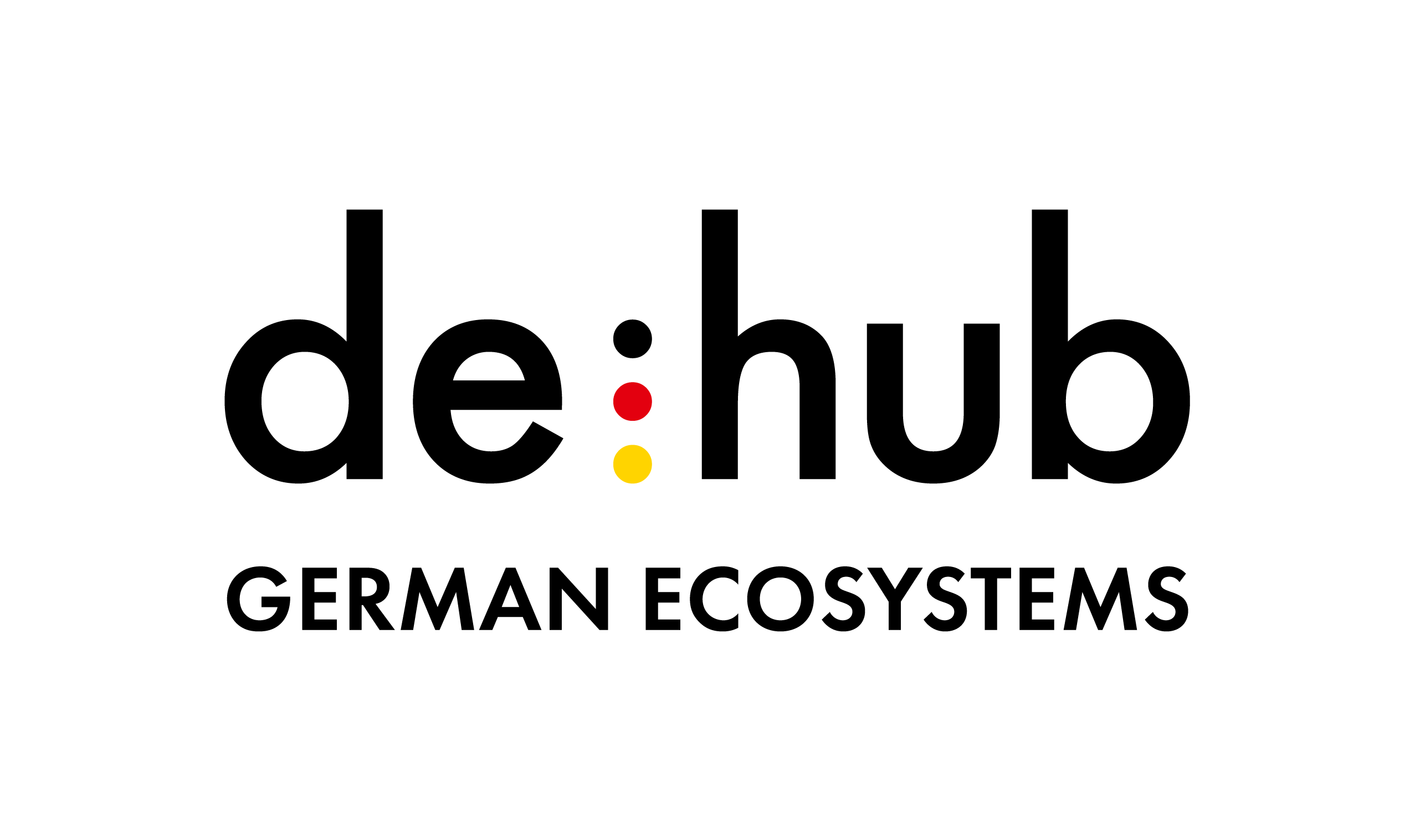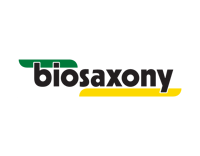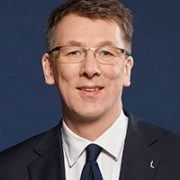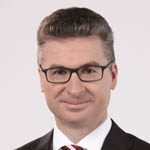One unified community
Leipzig is home to a like-minded community of established innovators ranging from SMEs and established corporations, to dynamic startups and recognized research facilities (examples below).
With every slide you can:
I like to think so...
The CLEAN series has been created to make it easy to upload content from your favorite video platforms.
Therefore, the German government acknowledged that this region will shape the digital transformation of these sectors as Smart Infrastructure Hub Leipzig. There are many good reasons for innovators like startups, researchers, SMEs or corporates in these sectors to come and stay in Leipzig.
The Digital Hub Initiative is a program supported by Germany's Federal Ministry for Economic Affairs and Energy, in which 12 regions in the country were designated as hubs, each hub responsible for making advancements in certain areas of technology. Leipzig is the official Hub in Germany for Smart Infrastructure.

Leipzig is home to a like-minded community of established innovators ranging from SMEs and established corporations, to dynamic startups and recognized research facilities (examples below).
This project is very closely aligned with various European entities such as the EU itself, the German State, the Free State of Saxony, and the City of Leipzig.
Leipzig is a vibrant, affordable, and lovely city that belongs to the fastest growing regions in Europe, located just one hour south of Berlin. Entrepreneurs here benefit from expansive networking and partnership opportunities, and low living costs.



The Smart Infrastructure Hub is a brand that links many players and projects in the fields of energy, smart city, ehealth and cross-sectional technologies. A regional hub agency links and moderates between those actors, building a strong network that is open for new partners and projects as well.
Both clusters link several dozens of SMEs and research institutes in the region and organize various events as well as projects. Due to the fact that many companies in the region are rather small, joint research projects are crucial to use synergies and create cooperation. Cluster associations are very important to create these links.
Already in 2011 regional companies decided to bundle their expertise through the “Netzwerk Energie & Umwelt e.V.” (NEU e.V.). Today, 75 companies, research institutes, universities, political players and other organizations are members of NEU e.V. with its brand “Energiemetropole Leipzig” and build a strong network. The initiative wants to foster communication, do city marketing, coordinates technology transfer, supports job development and national as well as international cooperation. NEU e.V. takes responsibility for several tasks and events within the Smart Infrastructure Hub and is a crucial actor within it.
Furthermore, NEU e.V. has launched Leipzig Trails in 2020, a guided information tour which can take participants through the city, so they can establish contacts, exchange information, network and develop opportunities with potential investors and other key contacts in Leipzig’s economic environment. Book your tour today here
 VFG was founded in 2004 by the relevant players of the health care sector in Leipzig, including the City of Leipzig itself, to promote Leipzig as a leading center for medicine in science as well as in clinical practice across Germany and internationally. VFG also fosters cooperation between the various medical institutions and companies in the region. The association’s work particularly focuses on further development of the Region of Leipzig as an international best practice example for the health economy. Through participation in European and national projects (e.g. digitalLIFE4CE) VFG promotes interaction and communication between the foreign and regional entities. The coordination of knowledge transfer and collaboration between research institutions and partners in the economy is an important task of the association. In addition to this, the association organizes the annual Leipzig “Health Economy Forum”, allowing all partners to come together. In this important meeting the health economy of Central German gathers and gets insight to the latest trends and new developments in health-related research and services. VFG hosts several working groups on health related topics, e.g. eHealth, corporate health management, senior-focused activities and services.
VFG was founded in 2004 by the relevant players of the health care sector in Leipzig, including the City of Leipzig itself, to promote Leipzig as a leading center for medicine in science as well as in clinical practice across Germany and internationally. VFG also fosters cooperation between the various medical institutions and companies in the region. The association’s work particularly focuses on further development of the Region of Leipzig as an international best practice example for the health economy. Through participation in European and national projects (e.g. digitalLIFE4CE) VFG promotes interaction and communication between the foreign and regional entities. The coordination of knowledge transfer and collaboration between research institutions and partners in the economy is an important task of the association. In addition to this, the association organizes the annual Leipzig “Health Economy Forum”, allowing all partners to come together. In this important meeting the health economy of Central German gathers and gets insight to the latest trends and new developments in health-related research and services. VFG hosts several working groups on health related topics, e.g. eHealth, corporate health management, senior-focused activities and services.
SpinLab – The HHL Accelerator supports innovative founding projects in the fields of energy, smart city, ehealth and cross-sectional technologies with the implementation and growth of their ventures. In addition to intensive coaching, the founding teams will also benefit from a high-caliber mentoring program as well as numerous contacts to investors, established companies and other founders. They can use a co-working office with state-of-the art equipment on the premises of Spinnerei, an old cotton mill now serving as a center for creativity, and will gain access to various technologies offered by partners. Moreover, they get a grant of up to 15.000 Euro with no strings attached. Even after completing the program, the startup teams are supported in their recruiting efforts, they can plan their expansion through an international exchange program and they get the opportunity to rent office space next to SpinLab. The founders will be able to use all offers free of charge when they are accepted for the six-month program.
The accelerators is partnering with many SMEs and big corporates that are heavily effected by digital transformation, but they yet lack internal resources to compete against digital leaders in their fields. Therefore, they use the synergies within the hub to effectively support their digital transformation. Through the acceleration program they:
SpinLab – The HHL Accelerator also serves as regional hub management.
Another important established instrument is a mainly privately funded venture capital fund focussing on seed and early stage deals in Central Germany (Saxony,Saxony-Anhalt, Thuringia) – Smart Infrastructure Ventures. Such a fund can help to attract additional venture capital from other private investors and at the same time it can co-invest with existing state-owned regional funds such as TGFS, bmp, bm-t or the local MBGs.
The Readiness Checks by SpinLab Consulting are practical analyses for SMEs in the areas of innovation/startup, digitization, and IT. The aim of the analyses is to find out which challenges and in which cooperation formats SMEs should work together with startups. Also, the analyses measure the progress of digital transformation in SMEs. And they show how efficient the infrastructure, software, and data are in the analyzed companies and give them future-oriented recommendations for IT optimization.
Leipzig is a growing city. And so does its economy! Today the City of Leipzig already owns 10 different commercial centers such as BIO CITY Leipzig or the BIC Business & Innovation Centre Leipzig – mostly running at full capacity. However, the Smart Infrastructure Hub Leipzig needs a own facility as incubator for innovators in the fields on energy, smart city and ehealth but also related areas such as 3D printing, IoT and others. Within the next years, a building with several thousand square meters shall be realized.
In cooperation with the Smart Infrastructure Hub, the City of Leipzig hosts an innovation competition – the "Smart City Challenge Leipzig".
Founders, start-ups, students and established companies are invited to participate in the annual competition in order to find innovative digital solutions for given municipal and civil society issues. Three solution approaches per issue are selected from all submitted ideas, which are further developed with the city administration. The best of the three ideas will then be tested and implemented in practice.
Leipzig Trails
/leipzig_trails_logo.jpg?width=600&name=leipzig_trails_logo.jpg)
The Smart Infrastructure Hub in cooperation with NEU e.V. has launched Leipzig Trails in 2020, a guided information tour which can take participants through the city, so they can establish contacts, exchange information, network and develop opportunities with potential investors and other key contacts in Leipzig’s economic environment. Book your tour today here
Our research association of the University of Leipzig, HTWK Leipzig and HHL "Research Center Sustainable and Smart Infrastructure", RCI for short, unites our top Leipzig researchers with their interdisciplinary skills from the areas of classic infrastructure research, digitization, and applied artificial intelligence to create a new innovative research field.
Have a look on the RCI website or get in touch to know more about the current research projects, the scientific competencies, infrastructures and studies which can help you to get on with your sustainable and smart infrastructure topics.
The Smart Infrastructure Hub promotes Leipzig and the Region of Central Germany in the startup and innovation scene internationally. Therefore, the hub was presented through booths and speaking positions at several national and international events such as SXSW, CeBIT, Medica, Pirate Summit, and many more. Furthermore, the hub represents the interest of its members, both startups and digital enterprises. The hub places ads in relevant media. Altogether, this helps rather small companies to be more present, get more attention, and link to the world.
Many events and conferences in the region provide manifold opportunities to network and exchange ideas. More recently, innovations and startups have become an important part of most of them. Important regular events include (selection):
Yearly lighthouse conference under the patronage of the German Ministry of Economic Affairs & Energy with more than 350 participants. Organized by IHK Leipzig and Interessengemeinschaft der Unternehmverbände Ostdeutschlands, it welcomes selected startups to pitch on the main stage or present at a small exhibition.
A student-organized conference by HHL Leipzig Graduate School of Management for young energy professionals and students covering current topics in the energy sector including a case study competition and startup presentations.
This event brings together managers of the health industry. Includes a startup pitch session to win the eHealth award and is organized by VFG.
Yearly conference of the SMWA initiative Sachsen Digital.
Get to know the new SpinLab startups and the old community 🙂 Free drinks and talks at SpinLab
Yearly main conference of the hub partner NEU e.V. with all major energy companies of our Region
Conference and fair for energy management, energy services, and shared decentral systems at Messe Leipzig.
Hub partners will jointly select the next startups that will start in upcoming SpinLab classes Leipzig. (partners only)
Barcamp on agile product management, development, and leadership at SpinLab and seecon.
Biggest startup investor conference in Sachsen-Anhalt. This year in an old train depot. Choo. Choo.
Conference to discuss the digitalization of infrastructure hosted by seecon.
Leading convention on digital public services and smart city.
Yearly RCI conference addressing current sustainable and smart infrastructure topics.
We're part of an innovative ecosystem we've developed in Germany to specifically help startups flourish. When you collaborate with our initiative, you can also have access to our incubator in Hannover, our VC fund, our consulting team, and our startup accelerator located right here in Leipzig.
Leipzig is a young, dynamic and fast-growing city. In recent years the city has realized many environmental and smart city projects and built the administrative setup to foster the digitization of our city jointly with our citizens and innovative companies – whether startups or established innovators. Therefore, working within the Smart Infrastructure Hub is an essential part of our strategy for tackling the problems of our future society.
/Jung.jpg?width=124&quality=low)
As the Leipzig group, we are very pleased about the partnership with The Smart Infrastructure Hub. For the city, for our companies and for the people, citizens and customers, together we are constantly discovering new approaches to becoming better and better. That’s why we can turn cloud words like ‘digitization’ into action

The energy supply faces big challenges and unsolved questions. Through participation in the Digital Hub, we want to find suitable answers through innovative startups within the energy cluster. Moreover, as regional rooted corporation, the innovation capability of our region is close to our heart.

Coming from Zurich, we found a new home at Smart Infrastructure Hub Leipzig, where we not only attended the accelerator, but also won new partners and cooperators from the network. The associated fund Smart Infrastructure Ventures is among our seed investors. So we decided to stay in this ecosystem and opened an office in the hub coworking space.

Tel.: +49 341 – 355785-70
info@smartinfrastructurehub.com
This project is co-financed through public funding based on the budget confirmed by the representatives of the Saxonian parliament.
Spinnereistr. 7
04179 Leipzig
![]()
/White%20Versions/stadt_leipzig_white.png?width=130&name=stadt_leipzig_white.png)
/White%20Versions/sachsen_signet_white.png?width=90&name=sachsen_signet_white.png)
© Copyright – Smart Infrastructure Hub